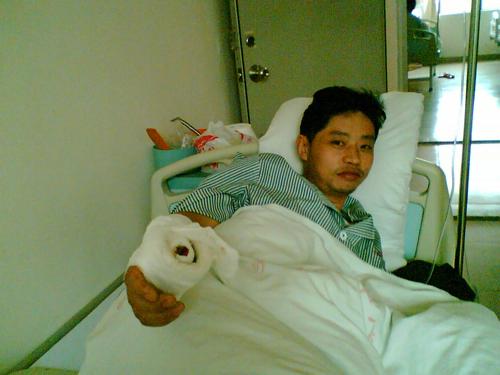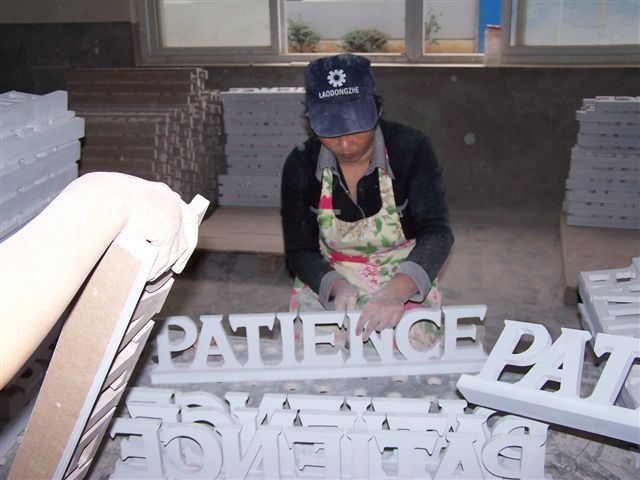
In a case with ramifications for U.S. companies that import products from overseas, a Los Angeles jury will decide this week the amount of punitive damages to impose on Dole Food Co. for using a pesticide that caused sterility in Nicaraguan workers.
The jury last week awarded the six Nicaraguan workers $3.2 million in compensatory damages, and said punitive damages are forthcoming.
The case marked one of the first times in the past 20 years that foreign workers outside of the maritime industry gained access to U.S. courts to sue a U.S. company that employed them, lawyers said. While U.S. judges agreed in past cases that workers had jurisdiction, they ruled it would be more convenient for the lawsuit to be tried in the workers' home countries.
"This is the start of corporate America having to pay for their exportation of jobs overseas and their disregard for overseas workers' health and safety," said Ross Toyne, a Miami lawyer with the firm Toyne and Mayo who has represented foreign workers against American-based cruise ships.
"This is massive. This changes the landscape," said David Egilman, a Brown University physician and professor who has been an expert witness in cases of worker poisonings. "This case shows that not only profits and exploitation will be globalized, but health and safety protections, too."
The victory could have special significance for Chinese workers, who manufactured nearly $300 billion in goods for the U.S. last year, said lawyer Dan Harris of the Seattle firm Harris and Moure. "Chinese law firms are gathering up plaintiffs now, looking up American products that cause harm," said Harris, whose firm has an office in Shanghai.
The Salt Lake Tribune in a series of stories last month documented that millions of Chinese workers develop fatal occupational diseases, including silicosis, leukemia, lymphoma and other cancers, while making U.S. products because they are routinely exposed to carcinogens. Chinese workers also routinely get limbs or fingers amputated because factories use outdated equipment not allowed under international standards.
Such revelations and the Dole case have inspired Chinese lawyers to act, Harris said.
In this era of globalization, the precise role of a U.S. business overseas determines the company's legal liability, Harris and other lawyers said. U.S. businesses that own factories or have "joint ventures" in factories overseas are potentially the most liable. Businesses that provide design specifications of a product or products also can be liable because they have participated in the manufacturing process, Harris said.
Most U.S. and Utah companies that buy goods from China do not own factories there, but many do provide design specifications and tell factories how to make their products. Multinational sportswear companies, for example, provide detailed specifications on the design and materials of the shoes they want to buy. Large U.S. furniture companies also provide their own designs and ask factories to provide "prototypes," or samples, according to those designs. If satisfactory, the companies give an order.
"If I'm a Chinese factory and 300 of my Chinese workers sue me for what went wrong, I'd sue the U.S. company or the workers could sue the U.S. company," Harris said. The workers could sue for negligence or failure to assess workers' safety.
Businesses that merely buy items from an overseas factory will have the least liability, Harris said. As laws adjust to cope with globalization, they will need to rectify the current "perverse incentive system," a system in which American companies that do not inspect the overseas factories they use have no liability, Harris said. "It's going to take a lot of cases before this works out," he said.
From January through May of this year, Utah businesses received at least 1,680 containers from China, according to import documents.
By bringing suits in the U.S., foreign workers can win much larger judgments than in their home countries, lawyers said.
In the current Los Angeles Superior Court case, the workers toiled on banana plantations for Dole during the 1970s when Dole used the pesticide DBCP even though the company knew it caused sterility in both animals and humans. The pesticide stops microscopic "worms" from eating the roots of the banana plants, allowing for larger crop yields.
The Dow Chemical Co. of Midland, Mich., manufactured the pesticide, but stopped in 1977, when three dozen workers in a California plant that processed it were diagnosed as sterile. During that year Dole threatened to sue Dow for breach of contract if Dow did not continue to supply Dole with DBCP, according to court testimony. Dole continued to use the pesticide in its foreign divisions without warning workers or providing protective gear.
Dole's lawyer, Rick McNight, argued during the trial that workers failed to establish proof that they had been exposed to too much DBCP. He also pointed out that many Dole executives involved in decisions about the chemical, 30 years ago, are now dead.
The jury in Los Angeles set damages for Dow at about $754,000 total for the six workers involved, according to Dow lawyer Gennaro Filice.
Courts in Nicaragua already have levied more than $600 million in judgments against Dole and other companies, according to Juan Dominguez, a lawyer for the workers. But the workers have been unable to collect the money. Tens of thousands of workers have sued worldwide over the chemical, Dominguez said.
In the past, when U.S. judges refused to hear such cases, corporations in effect won those cases, said Susanna Bohme, a Brown University doctoral candidate who wrote her dissertation on the case. "By slipping between national justice systems, corporations are often able to escape judgment altogether," Bohme wrote in her dissertation. "This mobility allows trans-national corporations insulation from the state's mechanisms of accountability."
Thousands of workers from Costa Rica, Honduras, Guatemala and Panama have filed four other lawsuits in Los Angeles.




